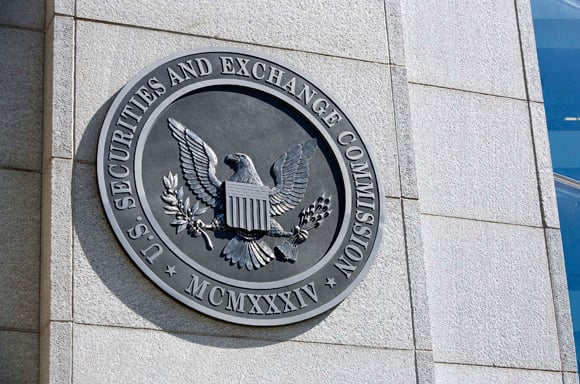Commission tells JPMorgan securities unit not to do what it told it not to do two times before; third time's the charm?
Read just about any article in the financial press about a Securities and Exchange Commission settlement with some accused fraudster, and you probably will see two lines bound to get a lot of eyes rolling.
One is that the defendant neither admitted nor denied the SEC's claims. The other is that the penalties include a court injunction or SEC order barring the alleged crook from breaking the securities laws in the future, as if it had been perfectly legal to violate them beforehand. No one, it seems, ever gets nailed for anything.
As if that weren't maddening enough, here's an open secret: The SEC hardly ever enforces these obey-the-law orders. This brings us to last week's headline-grabbing settlement between the SEC and JPMorgan Chase & Co. securities arm over a toxic bond deal four years ago called Squared CDO 2007-1.
First, the prologue: In 2006, the SEC fined the same JPMorgan unit $1.5 million after determining it had defrauded customers who bought something called auction-rate securities from the company. Specifically, the SEC accused it of violating section 17(a)(2) of the Securities Act of 1933, under which the SEC need only show negligence to establish a fraud claim. The SEC also ordered the company not to violate that section of the law in the future.
So what would be the penalty for disobeying that order? Nothing, it turns out.
One More Time
As part of last week's settlement, the SEC accused the same JPMorgan subsidiary of again violating the same section of the law. However, the commission's complaint didn't include any allegation that the company had breached its 2006 cease-and- desist order. An SEC spokesman, John Nester, didn't offer an answer when asked why not. A JPMorgan spokesman, Joseph Evangelisti, declined to comment.
“This is inexcusable on the part of the SEC not to push this, and it shows how pathetically eager it is to hang up part of the scalp, close an investigation, point to a remedy, and then move on,” says James Cox, a securities-law professor at Duke University School of Law. “They're just indicating that these orders don't have any future impact. That's too bad for the public interest.”
Here's what the SEC should have done, for appearances' sake if nothing else. It should have added a claim for violating the 2006 order and fined the company for that infraction separately, even if it kept the total settlement amount the same. Instead, the SEC acted as if the cease-and-desist order never existed, which makes you wonder why the commission bothered to issue it in the first place.
No Names
Under last week's settlement, which was approved yesterday by a federal judge in New York, JPMorgan will pay $153.6 million. No individuals who worked for JPMorgan were named as defendants, as if the fraud just happened of its own volition. The company also consented to an injunction barring future violations.
Technically, the infractions cited in the 2006 complaint should have disqualified the company from participating in certain kinds of securities offerings. So, back in 2006, JPMorgan asked the SEC's staff for a waiver that would let it go about its business as usual. (This, too, is standard operating procedure whenever a big securities firm settles an SEC fraud complaint.)
The company got what it wanted, with one catch. The staff wrote that its decision was based on the assumption that JPMorgan “will continue to comply with” the SEC's cease-and- desist order. The company received two similar waivers from the five-member commission, as well. Don't count on the SEC to revoke any of those waivers now, though.
Third Time
Last week's lawsuit was the third time since 2006 that the SEC accused the same subsidiary, J.P. Morgan Securities, of the same kind of fraud violation. In 2009, the company -- without admitting or denying anything, of course -- paid $75 million to end the SEC's investigation into some nasty derivatives it sold to Jefferson County, Alabama. The alleged misconduct in that instance predated the 2006 order, though. The SEC went ahead and issued another cease-and-desist order.
What's galling is how typical this is. Back in 2006, the securities arms of Goldman Sachs Group Inc. and Wachovia Corp. were co-defendants with JPMorgan in the same auction-rate- securities case. They, too, were issued cease-and-desist orders barring the same type of future violations as JPMorgan.
Both Goldman and Wachovia were accused later by the SEC of violating the same section of the law again. The SEC settled those cases without accusing either company of violating the prior orders. Per the usual ritual, they neither admitted nor denied the SEC's claims.
Now ask yourself: Is this any way to run a cop shop? The SEC's enforcement division, led by Robert Khuzami, should be embarrassed for engaging in such charades, as should Chairman Mary Schapiro and her fellow commissioners. No one can expect Wall Street to respect the SEC when the agency doesn't even pay lip service to its own orders against repeat offenders. The notion of deterrence has become a fantasy.
Just remember that the next time some too-big-to-fail bank tries to sell you anything.
(Jonathan Weil is a Bloomberg News columnist. The opinions expressed are his own.)







